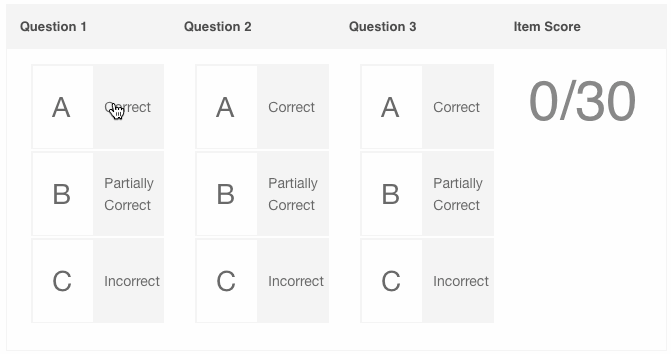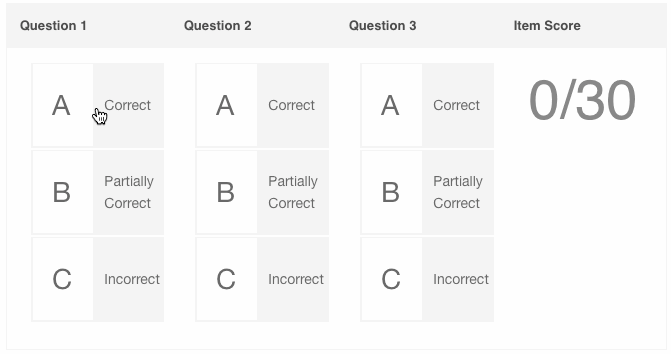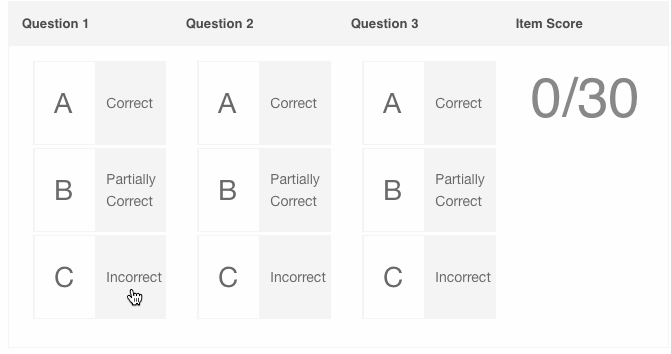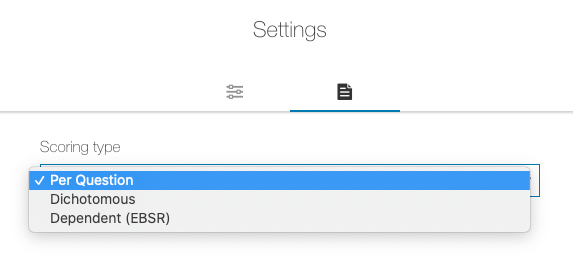Scoring Types
ADAM supports three different types of Item scoring: Per Question, Dichotomous, and Dependent (EBSR: Evidence-Based Selected Response). The scoring type you select determines how the Item will be scored in a user's session.
Per Question
This is the default scoring type. The score for the Item is calculated by adding the score from each Question on the Item.
For the purposes of the following demos, a fully correct Question scores 10, a partially correct Question scores 5, and an incorrect Question scores 0.

Figure 1: Per Question Item scoring.
Dichotomous
Dichotomously scored Items have only two possible outcomes: fully correct or fully incorrect. If the user's score for every Question on the Item is fully correct, the score for the Item is calculated by adding the max scores from each Question. If any Question on the Item is not fully correct, the score is zero.

Figure 2: Dichotomous Item scoring.
Dependent (EBSR)
In dependent scoring, the score taken from each Question depends on the scores of previous Questions on the Item. The rule is that if a Question on the Item is not fully correct, the user is not awarded a score for any subsequent Questions on the Item.
Such scoring can be applied when there are two or more Questions dependent on each other. For instance, the first Question has to be answered correctly because the following one is based on how the student got to the right solution.
This scoring type can be used to emulate an Evidence-Based Selected Response (EBSR) Item type.

Figure 3: Dependent (EBSR) Item scoring.
Authoring
The Item Scoring Type is found in the Details section  of an Item's settings. Change the scoring type using the drop-down menu.
of an Item's settings. Change the scoring type using the drop-down menu.


Figure 4: Item scoring configuration.